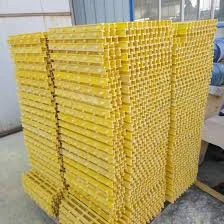
-
 Afrikaans
Afrikaans -
 Albanian
Albanian -
 Amharic
Amharic -
 Arabic
Arabic -
 Armenian
Armenian -
 Azerbaijani
Azerbaijani -
 Basque
Basque -
 Belarusian
Belarusian -
 Bengali
Bengali -
 Bosnian
Bosnian -
 Bulgarian
Bulgarian -
 Catalan
Catalan -
 Cebuano
Cebuano -
 China
China -
 China (Taiwan)
China (Taiwan) -
 Corsican
Corsican -
 Croatian
Croatian -
 Czech
Czech -
 Danish
Danish -
 Dutch
Dutch -
 English
English -
 Esperanto
Esperanto -
 Estonian
Estonian -
 Finnish
Finnish -
 French
French -
 Frisian
Frisian -
 Galician
Galician -
 Georgian
Georgian -
 German
German -
 Greek
Greek -
 Gujarati
Gujarati -
 Haitian Creole
Haitian Creole -
 hausa
hausa -
 hawaiian
hawaiian -
 Hebrew
Hebrew -
 Hindi
Hindi -
 Miao
Miao -
 Hungarian
Hungarian -
 Icelandic
Icelandic -
 igbo
igbo -
 Indonesian
Indonesian -
 irish
irish -
 Italian
Italian -
 Japanese
Japanese -
 Javanese
Javanese -
 Kannada
Kannada -
 kazakh
kazakh -
 Khmer
Khmer -
 Rwandese
Rwandese -
 Korean
Korean -
 Kurdish
Kurdish -
 Kyrgyz
Kyrgyz -
 Lao
Lao -
 Latin
Latin -
 Latvian
Latvian -
 Lithuanian
Lithuanian -
 Luxembourgish
Luxembourgish -
 Macedonian
Macedonian -
 Malgashi
Malgashi -
 Malay
Malay -
 Malayalam
Malayalam -
 Maltese
Maltese -
 Maori
Maori -
 Marathi
Marathi -
 Mongolian
Mongolian -
 Myanmar
Myanmar -
 Nepali
Nepali -
 Norwegian
Norwegian -
 Norwegian
Norwegian -
 Occitan
Occitan -
 Pashto
Pashto -
 Persian
Persian -
 Polish
Polish -
 Portuguese
Portuguese -
 Punjabi
Punjabi -
 Romanian
Romanian -
 Russian
Russian -
 Samoan
Samoan -
 Scottish Gaelic
Scottish Gaelic -
 Serbian
Serbian -
 Sesotho
Sesotho -
 Shona
Shona -
 Sindhi
Sindhi -
 Sinhala
Sinhala -
 Slovak
Slovak -
 Slovenian
Slovenian -
 Somali
Somali -
 Spanish
Spanish -
 Sundanese
Sundanese -
 Swahili
Swahili -
 Swedish
Swedish -
 Tagalog
Tagalog -
 Tajik
Tajik -
 Tamil
Tamil -
 Tatar
Tatar -
 Telugu
Telugu -
 Thai
Thai -
 Turkish
Turkish -
 Turkmen
Turkmen -
 Ukrainian
Ukrainian -
 Urdu
Urdu -
 Uighur
Uighur -
 Uzbek
Uzbek -
 Vietnamese
Vietnamese -
 Welsh
Welsh -
 Bantu
Bantu -
 Yiddish
Yiddish -
 Yoruba
Yoruba -
 Zulu
Zulu
fiberglass pipe
Understanding Fiberglass Pipe A Comprehensive Overview
Fiberglass pipe, known for its versatility and resilience, has become a crucial component in various industries ranging from construction to oil and gas. This innovative material is a composite made from a combination of glass fibers and resin, which creates a strong, lightweight, and corrosion-resistant pipe. As industries continue to evolve, the demand for efficient, durable, and sustainable piping solutions has led to an increased reliance on fiberglass pipe systems.
Advantages of Fiberglass Pipe
One of the standout characteristics of fiberglass pipe is its exceptional strength-to-weight ratio. Unlike traditional metals and concrete pipes, fiberglass is significantly lighter while maintaining the mechanical strength needed for both pressure and non-pressure applications. This reduced weight not only facilitates easier handling and installation but also lowers transportation costs.
Another critical advantage is its resistance to corrosion. Fiberglass does not rust, rot, or scale, which allows it to maintain its integrity and performance over time, even in harsh environments. This characteristic makes fiberglass pipe an ideal choice for transporting chemicals, wastewater, and other corrosive substances. Additionally, fiberglass’s reduced friction coefficient compared to traditional materials allows for improved flow rates, which is particularly beneficial in fluid transport applications.
Applications of Fiberglass Pipe
The versatility of fiberglass pipe extends across a myriad of sectors. In the oil and gas industry, fiberglass pipes are used in gathering and distribution systems, offering reliability in environments that can be harsh and abrasive. Their lightweight nature also facilitates easier handling, which is essential in remote drilling locations where logistics can be challenging.
In municipal applications, fiberglass pipe is widely employed in water and wastewater management systems. The corrosion-resistant properties ensure longevity and reliability, making it suitable for both sewer systems and potable water projects. Furthermore, many municipalities are opting for fiberglass solutions as a way to reduce maintenance costs and extend the lifespan of infrastructure.
fiberglass pipe

The construction industry also benefits significantly from fiberglass pipe. It is frequently used for drainage and stormwater management systems. The flexibility and strength of fiberglass allow for various installation methods, including trenchless technology, which reduces the need for extensive excavation and minimizes environmental disruption.
Environmental Considerations
As sustainability becomes a pivotal focus across industries, fiberglass pipe presents an eco-friendly alternative. The longevity of fiberglass reduces the need for frequent replacements, thus minimizing waste. Moreover, fiberglass pipes can be manufactured with recycled materials, aligning with green building practices and contributing to a reduced carbon footprint. Their lightweight nature also translates to lower energy consumption during transport and installation, further enhancing their sustainability credentials.
Challenges and Considerations
While fiberglass pipe offers numerous benefits, it is crucial to consider potential challenges. The initial cost of fiberglass pipes can be higher than that of traditional materials, which may deter some projects from opting for this solution. Additionally, proper installation is essential to maximize effectiveness; therefore, skilled labor and knowledge of fiberglass handling are imperative.
Another consideration is the thermal expansion properties of fiberglass, which can affect performance in areas with significant temperature fluctuations. It is important for engineers and project managers to take these factors into account during the design and planning phases.
Conclusion
In conclusion, fiberglass pipe represents a forward-thinking solution that addresses many challenges faced in modern infrastructure. Its light weight, corrosion resistance, and versatility make it an attractive choice for various applications across several industries. As technological advancements continue to enhance fiberglass manufacturing processes, its adoption is likely to grow, paving the way for sustainable and efficient piping solutions that meet the demands of a changing world. Whether in oil and gas, municipal services, or construction, fiberglass pipe stands out as a viable alternative that delivers performance and longevity.









